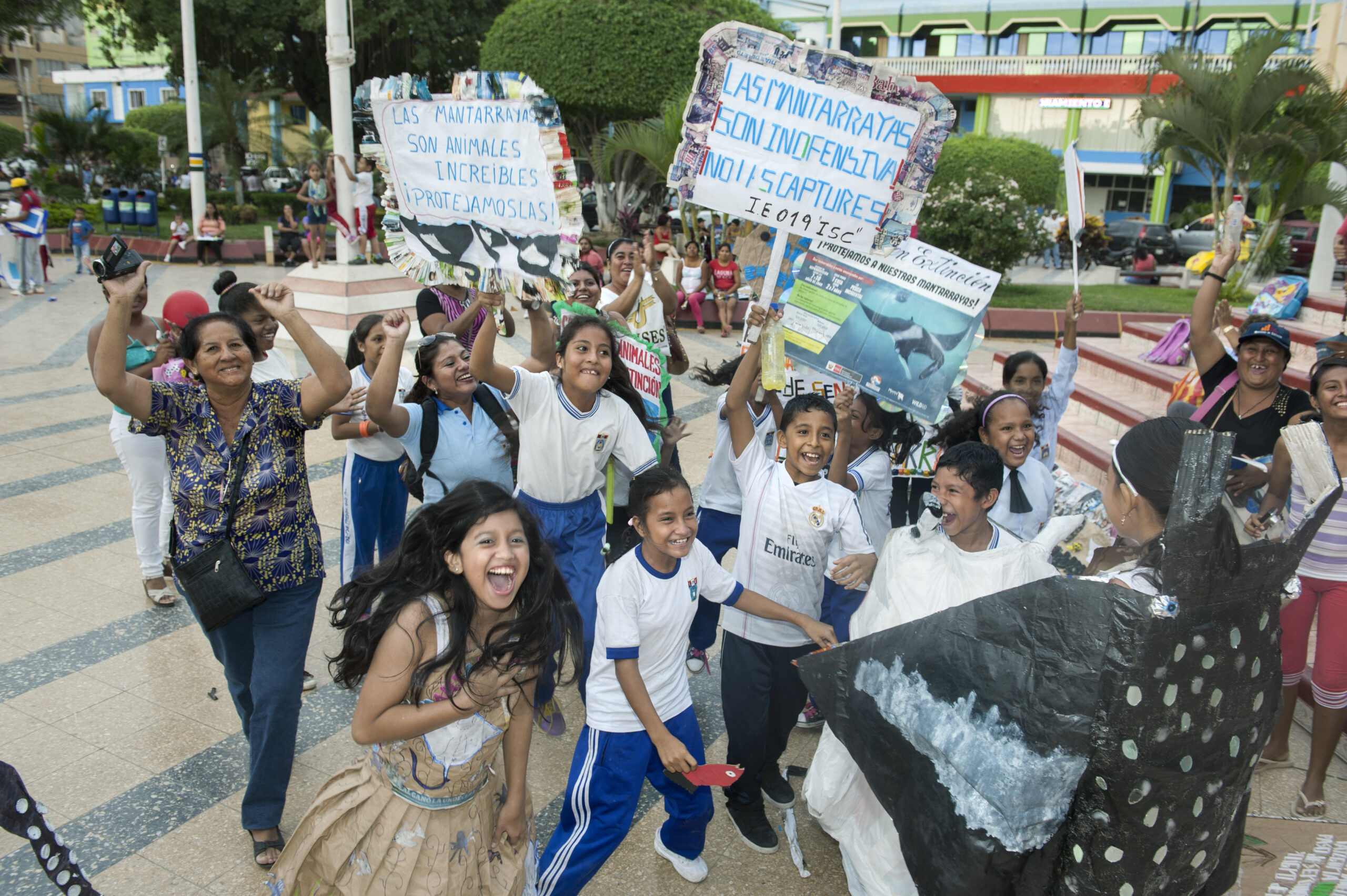
DROPBOX LINK TO IMAGES AND PHOTO CREDITS HERE
BOSTON, MASS. (December 17, 2024) – A recently-published study in the journal Biological Conservation highlights how small grants can address ocean conservation challenges in a manner that promotes social equity.
Low- and middle-income countries (LMICs) are disproportionately impacted by threats to ocean health, such as overfishing and climate change, which are often caused by the world’s high-income countries (HICs). These inequities and resultant challenges affecting both marine biodiversity and livelihoods in LMICs have been driven by a long history of resource extraction and colonialism by HICs. The study authors point to characteristics of grant programs that make them accessible for local leaders, who are best positioned to design conservation action in their communities.
This perspective piece was authored by marine conservationists working with the New England Aquarium’s Marine Conservation Action Fund (MCAF), which is celebrating 25 years of supporting locally based conservation projects and leaders worldwide. Among the paper’s authors are MCAF Director Elizabeth Stephenson and Program Manager Emily Duwan, as well as MCAF fellows and collaborators who have helped shape the program. As a case study for small grants, Stephenson and her colleagues analyzed project characteristics and outcomes from MCAF’s grantmaking over two decades, from 1999-2020. Projects supported by MCAF had immediate impacts, like filling knowledge gaps, protecting individual animals, and strengthening marine protected areas (MPAs). They also contributed to lasting conservation impacts, including new species protections, creating new MPAs, and sustained research and monitoring efforts.
“Historical inequities and current threats to ocean health make flexible grant-making a priority. It is more critical than ever to promote local leadership and ensure that conservationists on the frontlines have funding to develop the solutions they know are needed,” says Stephenson.
In its second decade, MCAF shifted to funding more projects led by individuals working in their own LMICs. This shift helps to combat the problem of “parachute science”—a practice whereby scientists from HICs work in LMICs without meaningful collaboration with local experts. This practice perpetuates inequities in LMICs and is a barrier to creating lasting, locally informed solutions. The authors highlight how grants programs can promote equity in conversation by providing accessible and flexible funding and leaving project design in the hands of local LMIC leaders.
“This analysis, which showcases the evolution of the MCAF program, highlights how supporting locally led conservation efforts can shift the needle on driving change for our oceans,” said co-author and longtime MCAF Fellow Dr. Asha de Vos of Oceanswell in Sri Lanka and The Oceans Institute in Australia. “Funding local leaders ensures that those on the ground, at the forefront of these conservation issues who often work with shoestring budgets year after year, are recognized, supported, and given a seat at the table. It creates a sense of custodianship and inspires future leaders to emerge from these communities. In the end, to save the world’s largest ecosystem, we need to build the world’s largest team.”
Among the authors’ recommended strategies for grant programs to amplify their impact and promote equitable practices are to:
- Support established and emerging leaders from LMICs,
- Make long-term investments in project leaders and organizations by offering multi-year, unrestricted funding and grants,
- Provide multi-faceted support for project leaders so they can elevate the visibility of their projects,
- And regularly seek feedback and guidance from project leaders on program strategy and funding decisions.
Joining current MCAF staff as co-authors are former MCAF Coordinator Bess-Lyn Edwards; MCAF fellows Dr. Asha de Vos of Oceanswell in Sri Lanka and The Oceans Institute in Australia, Kerstin Forsberg of Planeta Océano in Peru and Migramar of California, and Dr. Nelly Isigi Kadagi of World Wildlife Fund; Benny Berger and Dr. Michael Tlusty of University of Massachusetts Boston; and Dr. Jessica V. Redfern, Associate Vice President in the Aquarium’s Anderson Cabot Center for Ocean Life’s Ocean Conservation Science.
MEDIA CONTACT: Diana McCloy, diana@teakmedia.com; 978-697-9414
